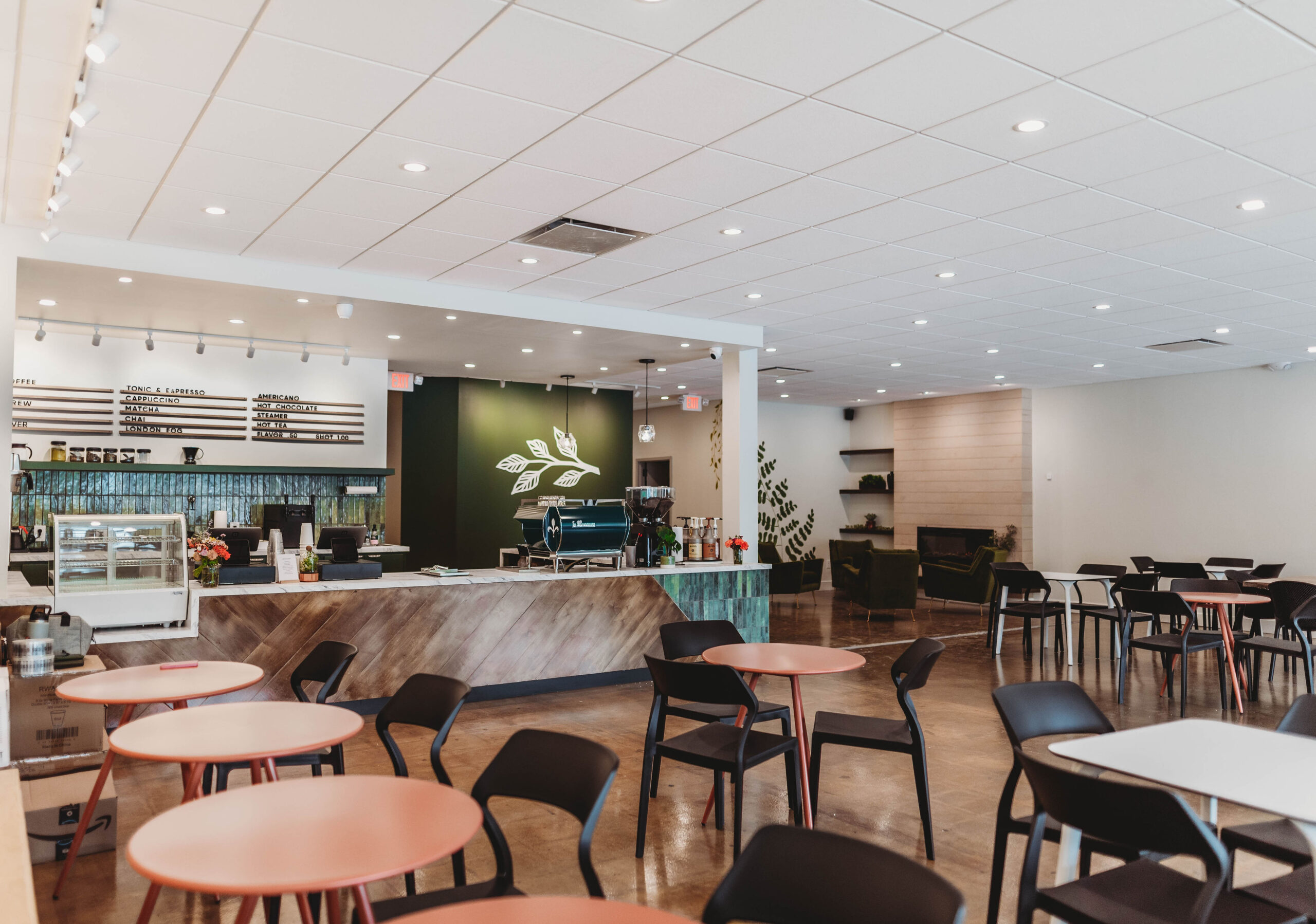About Us
Where are you located?
We’d love for you to visit us! We’re located in Downingtown, PA in beautiful Chester County. Please check our Contact page for our address and operating hours. Find us here.
When are you open?
Glad you asked. We’re a 6-day a week operation. Our hours are Monday – Friday 6am to 5pm, Saturday 8am to 6pm, closed Sundays.
Do you have free WI-FI?
We offer Wi-Fi to all our customers free of charge. Just ask us to provide you with our wireless Internet password. We spend a considerable number of resources ensuring that our wireless is easily accessible and reliable to all our customers.
How do I get a job there?
We try hard to make this a great place to work. We encourage anyone interested in working with us to visit our Careers page for information.
About Our Coffee
Where do you buy your coffee?
We are very proud to buy our beans from various local vendors. We can assure all our customers that our coffee is grown only where the environment and all those involved in growing and providing our beans are treated with total respect for fairness and sustainability.
As the coffee you order from us is roasted to order, you’re getting the freshest coffee possible! And not coffee that has been roasted over 30 days ago!
Do you offer decaf coffee?
We do offer decaf! See our Menu.
What is the best method for storing coffee?
We recommend storing coffee in an airtight container at room temperature. It is important to keep coffee away from excess air, moisture, heat, and light–in that order. If you’ve purchased a large quantity of coffee that you will not use immediately; small portions wrapped in airtight bags can be stored for up to a month in the freezer. However, once you’ve removed them from the freezer do not refreeze. Instead, move them to an air-tight container and store in a cool, dry place.
What is the best way to make coffee?
We don’t really believe in one “best” way to brew coffee. One of the best things about coffee is that there are so many effective brewing methods that can highlight the same coffee in myriad ways. Just make sure you’re using a good coffee to water ratio (we recommend 1 part coffee to 16 parts water).
What really matters is making sure your brewing gear is high quality and that you take good care of it. In general, if you’re looking at an auto-drip coffee maker, you want something that will heat water to 200º Fahrenheit and brew a full pot of coffee in 5-8 minutes. If you’re looking at manual brewers like a pour-over or a French press, the important thing is something that you feel comfortable using and cleaning. A great brewer does you no good if it’s too fiddly for you to want to use it!
What makes Espresso different than regular coffee?
Espresso is a strong, finely ground, dark roasted coffee brewed by quickly forcing hot water through the beans. Cappuccino is also a coffee drink that combines espresso and milk.
What are the differences in Arabica and Robusta beans?
Arabica Beans have a wide range in taste and smell. They are a more delicate bean produced in the tropical regions at a high elevation. They are more expensive due to the hands-on production process.
Robusta Beans have a neutral to harsh taste and an oatmeal-like texture. They grow in low elevations, are heartier for rough handling, and yield higher pounds per acre. They are less expensive due to a more mechanized method of harvesting.
The caffeine levels of Arabica beans are roughly half the level of Robusta beans. Typically, Arabica has less than 1.7% caffeine while Robusta has up to 2.5%.
Which coffee-based drink has the most caffeine?
Most people think Espresso Roast has the most caffeine, but brewed coffee is proven to have more. A single 2 oz. Double Espresso shot has about 80 milligrams of caffeine. Whereas an average 12 oz. brewed coffee has about 120 milligrams of caffeine.
Does Dark Roast have less caffeine than Light Roast?
Generally, darker roasts have less caffeine than lighter roasts because the coffee bean is roasted longer, which typically cooks out more caffeine during the roasting process. The longer roast also gives a Dark Roast its “bold” flavor profile.
Does it matter how I store my coffee beans?
Yes, storage is integral to maintaining the natural freshness and flavor profile. For maximum freshness, using an airtight, opaque canister or glass container away from light in a cool, dry place will preserve the best taste. We do not advise freezing or refrigerating coffee. When coffee is taken in and out of a cold environment, the moisture introduced through condensation causes more damage than keeping the coffee at room temperature. Always remember air, light, and moisture reduce freshness. After opening your bag of coffee, tightly roll and seal the bag or transfer the coffee to an airtight container.
Coffee beans may be decorative and beautiful to look at, but you will compromise the taste of your coffee if you store your beans in ornamental, glass canisters on your kitchen countertop. Doing so will cause your perfectly roasted coffee beans to become stale, and you will notice your coffee quickly losing its fresh flavor.
What are the key steps to preparing for better brewing?
You need perfectly ground coffee (or freshly roasted beans to grind), clean brewing equipment, and quality water. Also, make sure you clean the coffee pot and coffee maker once a week.
Does the condition of my coffee maker matter to the brew?
Yes, you need to make sure you thoroughly clean all your equipment before you begin. The coffee will take on the flavor of your brewer if it is not clean. So the cleaner the machine, the purer your coffee will taste.
Does the kind of water matter to the quality of the brew?
Yes, for a pure coffee taste, use filtered or bottled water. And be sure to use cold water. DO NOT use distilled or softened water. Processed water is more acidic than filtered or bottled water, which also contains minerals that contribute to the overall taste and flavor extraction.
Does your coffee grind improve the overall taste?
Yes, if you are grinding whole bean coffee at home, a burr or mill grinder is preferable to use because all the coffee is ground to a consistent size. Keep this in mind: if your coffee tastes bitter, maybe it was ground too fine. On the other hand, if your coffee tastes flat, your grind is probably too coarse. Our coffee grind maintains optimal brewing consistency.
Does the age of the coffee grounds (or cups) matter?
Yes, you should purchase coffee as soon as possible after it is roasted. Freshly roasted coffee is essential to a superb cup of coffee. Ideally, you should select a new batch of coffee every 1-2 weeks. Rest assured that all Evergreen Coffee is roasted in small batches and “made-to-order” to keep it fresh..
How much coffee should be used in ratio to the water?
A general rule of thumb is to scoop 1 to 2 tablespoons of ground coffee for every six ounces of water. This amount can be adjusted to suit your unique tastes and preferences (less water = stronger coffee). When it comes to Single Cups, smaller cups sizes brew stronger.
What should the water temperature be for the best brew?
Your brewer should maintain a water temperature between 195º–205º Fahrenheit for optimal flavor extraction. If the water is too cold, you run the risk of under-extraction, and the coffee may end up weak or sour. And if the water is too hot, you run the risk of over-extraction, leaving the coffee bitter.
What is the most common preparation method?
Usually, a drip or a filter-brew coffee maker with paper or plastic filters are the most common brewing option in addition to single-serve brewing machines.
What does espresso grind mean? Can you use espresso coffee beans to brew drip coffee?
Espresso grind is finer than drip grind. You can use beans that are roasted for espresso in your drip machine or through any other brewing method — it will still be delicious!
Are there any benefits of cold brewing vs hot? Is the acidity lower? Is the coffee stronger?
Using only cold water to brew your coffee does result in lower acidity, which some people find to be easier on their stomachs. The strength of cold brew all depends on the brew recipe.
Can I compost my leftover coffee grounds?
You sure can! They’re acidic, so you’ll want to keep that in mind. Blueberries and other acidic soil loving plants will thank you.
Why are some coffees oily?
As coffee ages, it releases oils. Dark roasts are always going to have oil on the surface of the beans. The darker the roast, the more oil you will find on the surface of the beans.
What is the difference between “direct trade” and “fair trade”?
“Direct trade” is a term that some coffee roasters use to describe their practice of working directly with coffee farmers. It can mean different things to different coffee roasters. In any event, all coffee roasters rely on a chain of exporters and importers to manage the logistics and transportation from coffee farms to roasteries.
The fair-trade system guarantees farmers a base price, regardless of the state of the global coffee market (also known as the Commodity, or C-market). To ensure fairness and transparency, this price is set and enforced by an independent, third-party organization known as Fair Trade USA, who conducts quarterly audits.
How long can I keep a bag of coffee before it goes stale?
If you have a bag of whole beans that are heat-sealed, you can keep the coffee fresh up to 3 months. An open bag of ground coffee will be good up to 1 month before it starts to break down.
Which coffee brewing method is for me?
There are many ways to make coffee, and no one way is best. We enjoy using a variety of methods to bring some fun into the process. Each method can bring out different nuances in the coffee. Find out which method appeals to you most and have fun!
A Few Guidelines that Apply to Most All Brew Methods:
Filtered water is ideal. Avoid brewing with distilled/reverse osmosis water because the lack of minerals can result in a flat tasting coffee.
Ideally, grind beans fresh with a burr grinder. While not cheap, burr grinders do make a difference in aroma and taste.
Keep brewing equipment clean to avoid that old stale coffee smell.
Water temperature should be between 195-205°F
Use a digital scale to measure the coffee and water for a proper ratio. A good starting point is a 1/16 ratio, for every 16 oz of water use 1 oz of beans. Adjust this ratio according to your preference.
Flush the brewing device and filter with hot water before brewing. This pre-heats the device and flushes out any papery taste from the filter.
Are there any sugars or added sweeteners in your coffee?
Our coffees do not contain any sugars or artificial sweeteners.
Do you offer any of your coffee in decaf?
Yes we do! You can find all our decaf varieties here.
What kind of grinder should I get?
This is a rabbit hole, but we’d encourage you to invest in a burr grinder over a blade grinder. A burr grinder lets you grind consistently, and a uniform grind is critical to an even extraction, making for a more delicious cup.
How do I provide feedback on the coffee?

